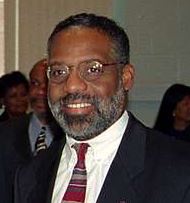
Michael White is an American politician of the Democratic Party and was the 55th and second longest-serving mayor of Cleveland, Ohio encompassing three four-year terms, from 1990 to 2002. He was Cleveland's second African American mayor as well as the city's second youngest mayor.

The 1940 United States Senate election in Ohio took place on November 5, 1940. Incumbent Democratic Senator Vic Donahey did not run for re-election to a second term. In the open race to succeed him, Republican Mayor of Cleveland Harold Hitz Burton defeated Democratic U.S. Representative John McSweeney.
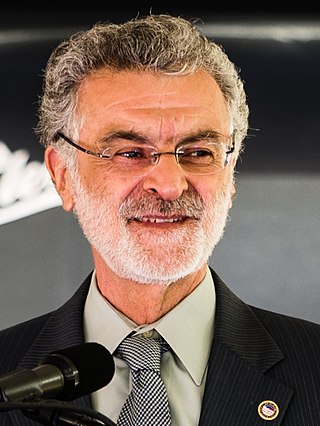
The 2017 Cleveland mayoral election took place on November 7, 2017, to elect the Mayor of Cleveland, Ohio. The election was officially nonpartisan, with the top two candidates from the September 12 primary election advancing to the general election, regardless of party. Incumbent Democratic Mayor Frank G. Jackson won reelection to a fourth term.
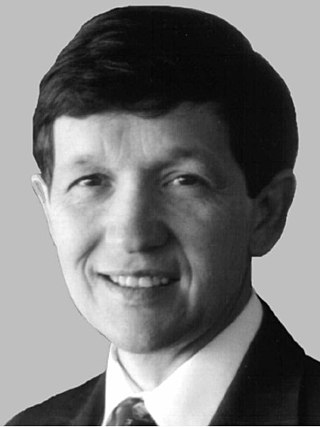
The 1977 Cleveland mayoral election took place on November 8, 1977, to elect the Mayor of Cleveland, Ohio. The election was won by Dennis Kucinich. The election was officially nonpartisan, with the top two candidates from the October 4 primary advancing to the general election.

The 1979 Cleveland mayoral election took place on November 6, 1979, to elect the Mayor of Cleveland, Ohio. George Voinovich defeated incumbent mayor Dennis Kucinich. The election was officially nonpartisan, with the top two candidates from the October 2 primary advancing to the general election.

The 1981 Cleveland mayoral election took place on November 3, 1981, to elect the Mayor of Cleveland, Ohio. The election was officially nonpartisan, with the top two candidates from the September 29 primary advancing to the general election.

The 1985 Cleveland mayoral election took place on November 5, 1985, to elect the Mayor of Cleveland, Ohio. The election was officially nonpartisan, with the top two candidates from the October 1 primary advancing to the general election.

The 1989 Cleveland mayoral election took place on November 7, 1989, to elect the Mayor of Cleveland, Ohio. The election was officially nonpartisan, with the top two candidates from the October 3 primary advancing to the general election.

The 1975 Cleveland mayoral election took place on November 4, 1975, to elect the Mayor of Cleveland, Ohio. Ralph Perk was reelected to a second consecutive term. The election was officially nonpartisan, with the top two candidates from the September 30 primary advancing to the general election.

The Cleveland mayoral election of 1971 saw the election of Ralph Perk.

The Cleveland mayoral election of 1967 saw the election of Carl Stokes.
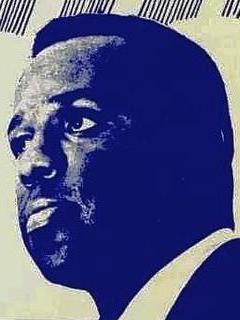
The 1967 Gary, Indiana, mayoral election, held on November 7, saw the election of Richard G. Hatcher.
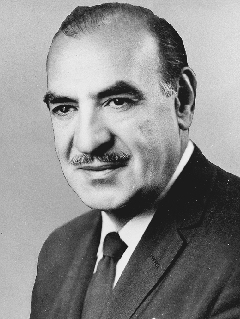
The Cleveland mayoral election of 1961 saw the fourth re-election of incumbent mayor Anthony J. Celebrezze. His Republican opponent was Albina Cermak, the first woman to run for mayor of Cleveland.

The 2022 Ohio gubernatorial election was held on November 8, 2022, to elect the governor of Ohio. Incumbent Republican Governor Mike DeWine won re-election to a second term in a landslide, defeating Democrat nominee Nan Whaley, the former mayor of Dayton, 62.4% to 37.4%. DeWine's 25-point victory marked the continuation of a trend in which every incumbent Republican Governor of Ohio since 1994 has won re-election by a double digit margin.

The 2021 Cleveland mayoral election took place on November 2, 2021, to elect the Mayor of Cleveland, Ohio. The election was officially nonpartisan, with the top two candidates from the September 14 primary election advancing to the general election, regardless of party. Incumbent Democratic Mayor Frank G. Jackson was eligible to run for reelection to a fifth term, but instead chose to retire. Justin Bibb was elected the 58th mayor of Cleveland in the general election.

The 1997 Cleveland mayoral election took place on November 4, 1997, to elect the Mayor of Cleveland, Ohio. Incumbent mayor Michael R. White was reelected to a third consecutive term, defeating city councilwoman Helen Knipe Smith.

On March 10, 2021, Marcia Fudge resigned her seat in the United States House of Representatives after being confirmed by the United States Senate to serve as the Secretary of Housing and Urban Development in the Biden administration. Governor Mike DeWine set the primary date for August 3, concurrent with the special election in Ohio's 15th congressional district. The general election was on November 2. Shontel Brown won both the competitive Democratic primary and the general election, and was sworn in on November 4.

The 1997 Atlanta mayoral election occurred on November 4, 1997, with a runoff election held on November 25, 1997.

Justin Morris Bibb is an American politician and former non-profit leader serving as the 58th mayor of Cleveland, Ohio since January 2022. Prior to serving as mayor, Bibb was the Co-Chair of Teach for America – Ohio, and a board member for the Greater Cleveland Regional Transit Authority, Destination Cleveland, and LAND Studio.

The 2022 Cuyahoga County executive election took place on November 8, 2022, to elect the County Executive of Cuyahoga County, Ohio. Incumbent Democratic County Executive Armond Budish was eligible to run for a third term, but instead chose to retire.















